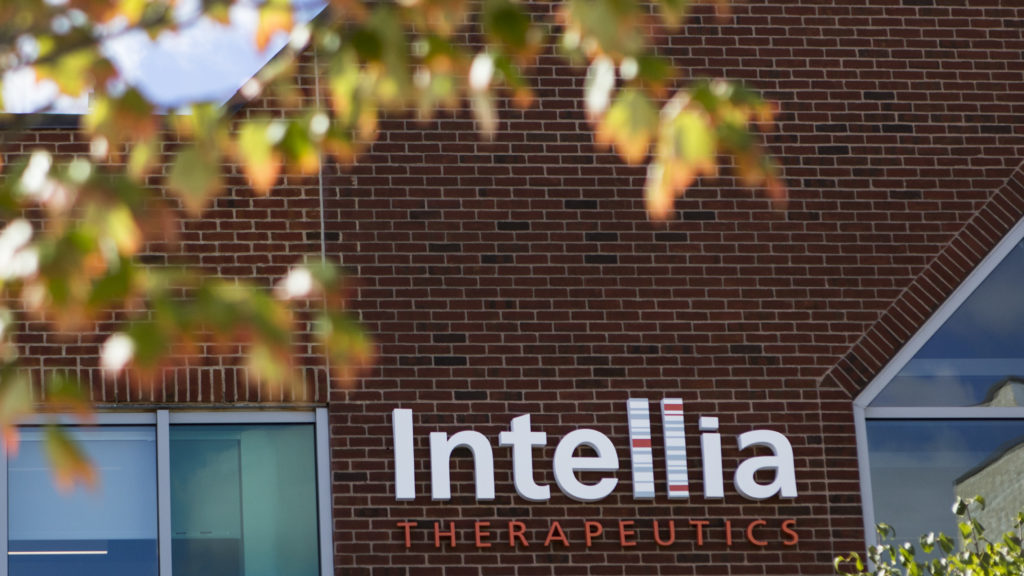Want to stay on top of the science and politics driving biotech today? Sign up to get our biotech newsletter in your inbox.
Good morning! Ready for JPM? We’ll be on the ground and covering it in-depth next week. Please note: This newsletter will be dropping into your inbox in the afternoon instead of in the morning.
advertisement
In the meantime, we have news: Gene-editing biotech Intellia cut its workforce by 27%, there’s a unique fund rolling out from Eli Lilly and Andreessen Horowitz, and we report on a new heart-focused startup with a $300 million Series A.
Former MyoKardia vets launch startup with $300M
Former executives from MyoKardia — the biotech acquired for $13 billion in 2020 by Bristol Myers Squibb — have launched a new heart disease-focused company called Kardigan with $300 million in Series A funding.
Tassos Gianakakos, who served as MyoKardia’s CEO and is now the chief executive at Kardigan, told STAT’s Matthew Herper exclusively that he “fell in love” with cardiology, and quickly brainstormed ways to stay active in the space. The new startup is focused on targeted drugs for heart disease, though it’s not disclosing which drugs or targets it’s working on.
advertisement
“I started thinking about this pretty much the day after BMS bought MyoKardia, because I was, I was sort of shown the door,” he said. “I mean that in a positive and affectionate way.”
Lilly, a16z launch unique $500 million fund
Eli Lilly and Andreessen Horowitz (a16z) are teaming up to launch a $500 million initiative called the Biotech Ecosystem Venture Fund. This sort of partnership is unprecedented, in that it will combine the storied venture firm’s expertise in sourcing and scaling biotech companies with the drugmaker’s vast experience in drug discovery and development.
The fund will invest in next-generation technologies, particularly in areas like artificial intelligence and neurodegenerative disease.
“I think this is unique, because what we aren’t able to do as a big company is have the deep roots into the ecosystem like a16z does with entrepreneurs,” a member of Lilly’s venture unit told STAT’s Matthew Herper. “So we’re a big company, very focused on our strategic areas, whereas companies such as a16z have the ability to identify new and disruptive science.”
Pharma’s big patent cliff, and a failed ALS study
Why could we see more deal-making at this year’s J. P. Morgan Healthcare conference? Why are investors concerned about a slowdown in U.S. biotech innovation? And what are the hosts’ New Year’s resolutions?
We discuss all that and more on this week’s episode of “The Readout LOUD,” STAT’s biotech podcast. We chat about how pharmaceutical companies are navigating a looming patent cliff. We also talk about yet another obesity startup and a failed study from Google’s secretive anti-aging company Calico.
Digital chief at Bristol explains why biopharma’s been slow with AI
Biopharma is trying to fold artificial intelligence into most facets of its clinical trial and drug development efforts, but the industry’s scientific and regulatory complexities are preventing it from being used to maximum potential. While AI can process vast data volumes, opines Greg Meyers, chief digital and technology officer at Bristol Myers Squibb, biology is just inherently complex — and the need for rigorous human oversight in safety and efficacy trials create hurdles.
advertisement
AI transformation is “inevitably coming for our industry,” Meyers writes. “We just don’t know when… The wisest course for tech/AI right now is to partner in driving immediate, achievable, incremental advancements with the tools on hand without overestimating the velocity of change.”
Intellia cuts 27% of staff, shores up late-stage assets
Intellia Therapeutics, a top CRISPR gene-editing player, has cut 27% of its staff. As part of the restructuring, the company will stop developing NTLA-3001, a treatment for alpha-1 antitrypsin deficiency-associated lung disease and other programs that are still at the research stage.
The company said it will focus instead on late-stage, clinically promising programs like NTLA-2002 for hereditary angioedema and nexiguran ziclumeran for transthyretin (ATTR) amyloidosis.
Intellia ended 2024 with $862 million in cash and investments, and said in a statement that with the workforce cuts it will have financial runway through the first half of 2027. This includes the potential commercial launch of its therapies in 2026.
A cancer win for Pfizer
From STAT’s Matthew Herper: Pfizer said that its subcutaneously administered PD-1, sasanlimab, improved the length of time until patients’ cancer recurred in high-risk non-muscle invasive bladder cancer (NIMBC), a form of bladder cancer that has not had new treatment options in decades.
Approximately 100,000 people are diagnosed with this type of cancer globally each year; it is treated with Bacillus Calmette-Guérin (BCG), a bacteria. But cancer recurs in about half of cases. Adding sasanlimab to BCG slowed the cancer’s return compared to BCG alone.
Pfizer has highlighted sasanlimab as a potential $1 billion drug. Johnson & Johnson is developing a competing treatment for NMIBC, TAR-200, that is a polymer scaffold that releases the chemotherapy gemcitabine into the tumor.
More reads
- The Massachusets biotech industry rebounded in 2024. Can the momentum last? The Boston Globe
- Right out of the gate, Light Horse nabs $62M and Novartis deal, FierceBiotech

